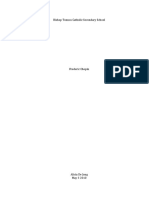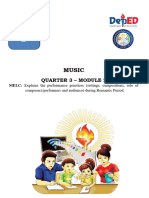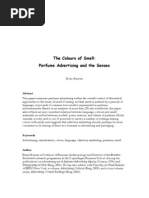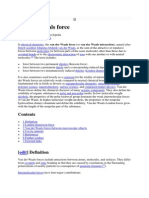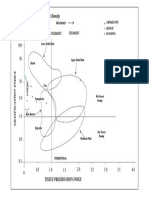Instrumental Music of The Romantic Period: Historical and Cultural Background
Instrumental Music of The Romantic Period: Historical and Cultural Background
Uploaded by
Jerly HinampasCopyright:
Available Formats
Instrumental Music of The Romantic Period: Historical and Cultural Background
Instrumental Music of The Romantic Period: Historical and Cultural Background
Uploaded by
Jerly HinampasOriginal Description:
Original Title
Copyright
Available Formats
Share this document
Did you find this document useful?
Is this content inappropriate?
Copyright:
Available Formats
Instrumental Music of The Romantic Period: Historical and Cultural Background
Instrumental Music of The Romantic Period: Historical and Cultural Background
Uploaded by
Jerly HinampasCopyright:
Available Formats
DIGOS CITY NATIONAL HIGH SCHOOL
Rizal Avenue, Digos City
MUSIC – Grade 9
THIRD QUARTER
Instrumental Music of the Romantic period
HISTORICAL AND CULTURAL BACKGROUND
Romantic music is described by some musicians, composers and researchers around the world as one of
the beautiful music creation because of its expansion of formal structure within a composition and making
the pieces more passionate and expressive.
This characteristic is not only shown in music world but also in other forms of art. Many compositions
during this era are made through the influenced of some great artist like Shakespeare, Edgar Allan Poe
and the like. This is also the time of invention, constructing of new design of high rise building in different
parts of Europe.
Nationalism is one of the main features of this era. This is evidently shown in some compositions made by
Romantic composer. One of which is the polonaise of Frederic Chopin, a dance composition for piano
which is famous in Poland until today.
Emotions, variety of musical style in compositions, freedom of expression are only a few things that
characterized the music of the romantic period. It was during the heights of popularity of Ludwig Van
Beethoven, one of the great composers during the classical period made a great distinction to change the
phase of composing music by bridging the music from classical to romantic era.
The culture of extensive music education in Europe extends from the classical period and explored more
in this era. Orchestra grows in number and became limitless, composers explored instrumentation and
many compositions were inspired by emotions in addition to a musical theme.
There are some facts about romantic musical period that everybody should know. The first one is that the
music wasn’t about just love but it was about human feelings. The music was used to tell stories and
express ideas. Most of the composers were proud of their country’s music and often use folk songs in their
works.
The music during this period used forms borrowed from classical music and made them bigger longer
songs and more instruments. The themes they wrote in their composition are mainly about nature,
literature, history and feelings.
PIANO MUSIC
One of the important features in the development of music during the romantic era is the piano
innovations. Classical era made significance in piano through the composition of sonatas made by Ludwig
Van Beethoven and other classical composers but it was reinvented and developed by some Romantic
composers like Frederic Chopin and Franz Liszt that was shown in some of their composition. Some of
this piano composition was adapted to a song like etude of Chopin to “no other love”. This two great
composer for piano signifies how a piano music can be more enjoyable at the same time challenging to
the people who wants to learn their style.
FREDERIC CHOPIN and his piano music
Frederic Chopin was known as the “Poet of the Piano”. Born on March 1, 1810 in Zelazowa,
Poland, he was considered as world renowned pianist and composer. He was known for his originality in
regards to piano.
Chopin composed almost primarily for the piano and some of his most well-known compositions are
Fantaisie in F minor, Op. 49, Revolutionary Etude, Op. 10, No. 12 and 24 Preludes, Op. 28.
Frederic Chopin began to play piano at age 4. He composed polonaise at the age of 7. He studied piano
at Warsaw Conservatory under Wilhelm Würfel and most of his music was influenced by polish folk music.
He finished his formal education at the higher school in 1829 and soon traveled to Europe giving concerts
in places such as Vienna, Munich, Paris, and London. He wrote almost exclusively for piano. He made
extensive use of piano pedal in most of his composition. He also composed mostly for chamber music and
avoided playing or performing inside the hall.
In 1831, Chopin arrived in Paris to further his career and he met other legendary composers such as
Franz List, Felix Mendelssohn and Robert Schumann. During this time in Paris, Chopin met and married
the famous French writer George Sand and later became a source of inspiration as well as a maternal
figure in Chopin’s life. In the latter part of Chopin’s life, his health began to decline and was diagnosed with
pulmonary tuberculosis. Chopin died on October 17th, 1849, in Paris.
…1…
3rd Quarter_Music_Grade9
Some of his music is characterized through its beautiful tone, rhythmic flexibility, graceful and elegant.
Some of his composition like mazurkas and polonaise express his love for Poland and most of his
composition did not attach any literary titles or programs to his pieces.
Piano works of Frederic Chopin
BALLADES- A verse form usually consisting of three stanzas of eight or ten lines each along with
a brief envoy, with all three stanzas and the envoy ending in the same one-line refrain.
ETUDES - A piece composed for the development of a specific point of technique.
MAZURKAS - A Polish dance resembling the polka, frequently adopted as a ballet form
NOCTURNES - An instrumental composition of a pensive, dreamy mood, especially one for the
piano.
POLONAISES - A stately, march like Polish dance, primarily a promenade by couples.
PRELUDES - An introductory performance, event, or action preceding a more important one.
WALTZES - A piece of music for this dance
IMPROMPTUS - A short composition, especially for the piano, performed in an offhand or
extemporized style.
SCHERSOS - a musical movement of playful character, typically in aba form
SONATAS - composition for one or more solo instruments, one of which is usually a keyboard
instrument, usually consisting of three or four independent movements varying in key, mood, and
tempo.
FRANZ LISZT and his symphonic poem
The best word that describes the works of Franz Liszt is “virtuosity”. He was known as the
virtuoso pianist and composer and the busiest musicians during the romantic era which include playing
and studying at Vienna and Paris at the same time touring throughout Europe by giving concerts.
Liszt was born in the village Doborjan, Hungary. He displayed remarkable talent at young age and easily
understands sight reading through the effort of his father as the first teacher at age six. A turning point
came when, in his early twenties, Liszt heard the virtuoso violinist Paganini performs so he decided to
dedicate himself doing piano music as what Paganini has done for the violin.
Most of the people from his time consider him as the generous composers by sharing both time and
money to the orphans, victim of disasters and the many students he taught music for free.
He was known as the musical architect through his symphonic poem by attempting to translate the
greatest works of literature into musical terms as shown in some of his composition. His piano
compositions include works such as piano Sonata in B minor, and two piano concertos which have
entered the standard selection He also made exuberant piano transcriptions of operas and famous
symphonies. Many of his piano compositions are among the most technically challenging pieces.
Liszt's Piano works
Grand Etudes after Paganini
12 Transcendental Etudes
Sonata in B Minor
Years of Pilgrimage (3 Volumes)
Operatic Fantasies (after Bellini, Mozart, Verdi and Wagner, among others)
Arrangements of the 9 Beethoven Symphonies
Transcriptions of Lieder by Schubert
Liszt's "Hungarian Rhapsodies" were originally written for solo piano, but many were arranged for
orchestra or other combinations of instruments. The Hungarian Rhapsody No.2 is the most
popular and was the basis for the Tom & Jerry cartoon called the Cat Concerto
LISZT WORKS FOR PIANO AND ORCHESTRA
2 Concertos (E-Flat and A Major)
Totentanz (Dance of Death) which adapts a Gregorian chant known as the Dies Irae (or Day of
Wrath)
Malediction for Piano and Strings
ORCHESTRAL COMPOSITION
Symphonic Poems (Hamlet, Les Preludes)
Faust Symphony
Dante Symphony
PROGRAM MUSIC
One of the distinct characteristic of romantic music is the unique feature of instrumental forms
called “Program music”. It is an instrumental music that conveys image or scenes, music that tells a short
story without text or lyrics and imaginative ideas fully developed through the imaginative effort of a `great
and genius composer Hector Berlioz.
…2…
3rd Quarter_Music_Grade9
HECTOR BERLIOZ and his program music
Hector Berlioz is a French romantic composer born on December 11, 1803. At his young age, he learns to
play guitar and flute but never became skilled in any musical instruments. His father was a physician and
he sent to a medical school to be like his father but it ends up in studying music.
One of the famous musical composition made by hector Berlioz is a five movement symphony called
“Symphonie Fantastique”.
PETER ILYICH TCHAIKOVSKY and his ballet music
Ballet according to dictionary.reference.com is a theatrical entertainment in which dancing and music often
with scenery and costumes combine to tell the story and establish an emotional atmosphere.
Peter Ilyich Tchaikovsky music was known for his ballet music. Born on May 7, 1840 in Votkinsk, Russia,
he first studied law in his youth and became a law clerk in St. Petersburg in his twenties. He rebelled and
began to study music at the conservatory also in St. Petersburg.
As a big fan of Mozart, Tchaikovsky studied composition with Anton Rubinstein and moved to Moscow and
started teaching at the new conservatory.
The early works of Tchaikovsky was not memorable because he feels a little frighten to his teacher Anton
Rubinstein but later became famous after he composed the musical poem “Fatum” and “Romeo and
Juliet”.
Despite of his personal struggle in marriage, he continues his music career in New York and conducted
his work. He experience great deal of fame in the last ten years of his life and later died because of
drinking unfiltered water from which he got the cholera.
Peter Ilyich Tchaikovsky music is characterized through the movement heard to some of his ballet
composition. As a musician, he composed haunting melodies and used great deal of folk music in his
symphonic works. His music is known for being both too beautiful and too depressing. There are very few
surviving manuscripts written by Tchaikovsky. He was very critical of his own work, and very often burned
his scores.
Tchaikovsky’s Famous Compositions
* Swan Lake * 1812 Overture
* Sleeping Beauty * Symphony No. 2
* The Nutcracker * Symphony No. 6 “Pathetique”
* Romeo & Juliet * Piano Concerto No. 1
CAMILLE SAINT-SAENS and his elegant music
Saint-Saëns was known as a talented musician from an early age. He was born in Paris on October 9,
1835 and started his music through the help of his aunt by teaching him piano lesson when he was only
two years old and afterward he began composing piano piece at age three.
He was considered as a composer who creates elegant music, neat, clean, polished and never excessive.
One of this is example is “the swan”. As an organist and one of the best pianists of his time, he sat very
still at the piano and played gracefully and cool.
Some of the facts during the peak of his career in musician and composer, many beautiful building,
churches and instruments were being built in France which includes the famous Eiffel tower.
Best known music of Camille Saint Saens
Carnival of the Animals
Danse Macabre and his Symphony
No. 3
The swan
Over 300 works, unusually in all genres, including
- 13 operas (Samson Delilah the only one remembered)
- 5 Symphonies (best known No3 the Organ symphony )
- 3 concertos for violin and orchestra
- 5 concertos for piano and orchestra
- 2 concertos for cello and orchestra
- organ music
- numerous pieces for the piano
- approximately 100 songs
- chamber music
- sacred music including a Requiem
…3…
rd
3 Quarter_Music_Grade9
You might also like
- Music of Romantic Period - 3rd Quarter (MUSIC 9)Document24 pagesMusic of Romantic Period - 3rd Quarter (MUSIC 9)Ryan Dale Valenzuela100% (6)
- Music 9: Full Name Grade and Section Date SubmittedDocument9 pagesMusic 9: Full Name Grade and Section Date SubmittedLovely Jane CanabatuanNo ratings yet
- Romantic PeriodDocument6 pagesRomantic PeriodShy ManzanoNo ratings yet
- Music of The Romantic PeriodDocument49 pagesMusic of The Romantic PeriodERLI CADUNGOGNo ratings yet
- Music Reading Material G9Document5 pagesMusic Reading Material G9Ethel Marie Casido BurceNo ratings yet
- Music of The Romantic PeriodDocument7 pagesMusic of The Romantic PeriodERLI CADUNGOGNo ratings yet
- Music History 9Document20 pagesMusic History 9Pat P. MonteNo ratings yet
- 1st Arts and Music (Third Module) MINIMIZEDDocument13 pages1st Arts and Music (Third Module) MINIMIZEDDennmark IgutNo ratings yet
- Music of The Romantic PeriodDocument64 pagesMusic of The Romantic PeriodSofia PojasNo ratings yet
- Mapeh 9 (3RD Grading)Document19 pagesMapeh 9 (3RD Grading)Ian Carl AtayanNo ratings yet
- Elegant Education Pack For StudentsDocument21 pagesElegant Education Pack For Studentsridleydelrosario0No ratings yet
- Music of The Romantic PeriodDocument5 pagesMusic of The Romantic PeriodaerovinvicNo ratings yet
- Music Handout Q3Document4 pagesMusic Handout Q3EllieNo ratings yet
- 3RD Music 1 Week Music of The Romantic Period PDFDocument50 pages3RD Music 1 Week Music of The Romantic Period PDFAmira TerminezNo ratings yet
- MusicDocument30 pagesMusicnicaNo ratings yet
- 3RD Music 1 Week Music of The Romantic Period PDFDocument50 pages3RD Music 1 Week Music of The Romantic Period PDFAnthony Joshua LugtuNo ratings yet
- Music Notes 9 Q3Document8 pagesMusic Notes 9 Q3gregdevera9No ratings yet
- 3RD Music 1 Week Music of The Romantic PeriodDocument50 pages3RD Music 1 Week Music of The Romantic PeriodAnthony Joshua LugtuNo ratings yet
- Music of The Romantic Period 1820 1910Document12 pagesMusic of The Romantic Period 1820 1910Ri-ann VinculadoNo ratings yet
- Music of The Romantic PeriodDocument30 pagesMusic of The Romantic Periodnejinil215No ratings yet
- Presentation of Group 4 Ver.2 1Document31 pagesPresentation of Group 4 Ver.2 1Mark Jhon Doctora IINo ratings yet
- LAS MAPEH 9 Q3 W1 MusicDocument6 pagesLAS MAPEH 9 Q3 W1 MusicJemalyn Hibaya LasacaNo ratings yet
- 3rdQ MusicDocument22 pages3rdQ MusicKent Kyle PalingcodNo ratings yet
- Music9 AsDocument2 pagesMusic9 AsLyza SuribenNo ratings yet
- Music 3rd Quarter Module 2020 2021Document5 pagesMusic 3rd Quarter Module 2020 2021Nia KianNo ratings yet
- Composers of Romantic PeriodDocument5 pagesComposers of Romantic PeriodAngel EscaloNo ratings yet
- Music of The Romantic PeriodDocument22 pagesMusic of The Romantic PeriodLORIZA MANUGASNo ratings yet
- Instrumental Music of The Romantic PeriodDocument5 pagesInstrumental Music of The Romantic Periodjessequirante14No ratings yet
- Music of Romantic Period - 3rd Quarter (MUSIC 9)Document30 pagesMusic of Romantic Period - 3rd Quarter (MUSIC 9)Neth ManaliliNo ratings yet
- Music of The Romantic PeriodDocument18 pagesMusic of The Romantic PeriodWendy RaymundoNo ratings yet
- Miss Ko Na Siya ReviewerDocument5 pagesMiss Ko Na Siya Revieweraxzhel178No ratings yet
- Mapeh 9 Music 3rd Quarter HandoutsDocument1 pageMapeh 9 Music 3rd Quarter Handoutssheglai3131No ratings yet
- 3rd Grading Module in Music 9Document4 pages3rd Grading Module in Music 9Dominique Lim Yañez35% (17)
- Niccolo PaganiniDocument10 pagesNiccolo Paganinimary heart baldemoroNo ratings yet
- Slem 1 Music Q3Document7 pagesSlem 1 Music Q3onlyai22lNo ratings yet
- Week 1: Third Quarter-Music 9Document3 pagesWeek 1: Third Quarter-Music 9Catherine Sagario Oliquino0% (1)
- Music 9 3rd Q HandoutsDocument2 pagesMusic 9 3rd Q HandoutsyhshshshNo ratings yet
- Music of Romantic PeriodDocument38 pagesMusic of Romantic PeriodElmer John De Leon100% (1)
- Music of The Romantic PeriodDocument2 pagesMusic of The Romantic PeriodReeva AlinsunurinNo ratings yet
- Quarter 3 NotesDocument35 pagesQuarter 3 Notesapple jane gandallaNo ratings yet
- ModuleDocument14 pagesModulexerxcelNo ratings yet
- MUSIC OF THE ROMANTIC PERIODDocument42 pagesMUSIC OF THE ROMANTIC PERIODbobmichael.diangsonNo ratings yet
- Q3 MusicDocument43 pagesQ3 MusicMariel ocampoNo ratings yet
- Music 9 - 2Q 1LQ ReviewerDocument4 pagesMusic 9 - 2Q 1LQ ReviewerNobody KnowsNo ratings yet
- Music NotesDocument4 pagesMusic NotesAeron YbanezNo ratings yet
- Bishop Tonnos Catholic Secondary SchoolDocument8 pagesBishop Tonnos Catholic Secondary SchoolAlicia JoyNo ratings yet
- Unit III Music of The Romantic PeriodDocument53 pagesUnit III Music of The Romantic Periodkimchiforlife.83No ratings yet
- Famous Composer of The Romantic PeriodDocument29 pagesFamous Composer of The Romantic Periodjenjang yannieNo ratings yet
- Music-of-Romantic-PeriodDocument35 pagesMusic-of-Romantic-Periodbraine26No ratings yet
- Reviewer in Mapeh 3RD GradingDocument8 pagesReviewer in Mapeh 3RD GradingCarlos, Jolina R.No ratings yet
- Secondary Music 9 Q3 Week2finalDocument11 pagesSecondary Music 9 Q3 Week2finalMichelle SoleraNo ratings yet
- MUSIC OF THE ROMANTIC PERIO1 q3 - HandoutsDocument4 pagesMUSIC OF THE ROMANTIC PERIO1 q3 - HandoutsdebuayanmarianeNo ratings yet
- 3rd Grading in MUSICDocument4 pages3rd Grading in MUSICmillinethNo ratings yet
- MUSIC 3rd Quarter SummaryDocument2 pagesMUSIC 3rd Quarter SummaryMelbayne AglugubNo ratings yet
- g9 Third Quarter HandoutDocument14 pagesg9 Third Quarter HandoutJoanna AbadNo ratings yet
- The Late 19th Century Saw A Dramatic Expansion in The Size of The and in The Dynamic Range and Diversity of Instruments Used in This EnsembleDocument3 pagesThe Late 19th Century Saw A Dramatic Expansion in The Size of The and in The Dynamic Range and Diversity of Instruments Used in This EnsembleCzaemesNo ratings yet
- Music M2W2 Romantic Period ComposersDocument26 pagesMusic M2W2 Romantic Period ComposersShemie Goc-ong EdarNo ratings yet
- activity music_20241212_234520_0000Document3 pagesactivity music_20241212_234520_0000Grace Anne MercadoNo ratings yet
- UntitledDocument33 pagesUntitledrheasam SabayaoNo ratings yet
- E4 Standard Practices For Force Verification of Testing MachineDocument10 pagesE4 Standard Practices For Force Verification of Testing MachineJuan Castañeda100% (1)
- 201435699Document84 pages201435699The Myanmar TimesNo ratings yet
- Brian - Moeran - Advertising The Colours of Smell - 2011Document45 pagesBrian - Moeran - Advertising The Colours of Smell - 2011Shishir Kumar SinghNo ratings yet
- ALS2013 Chapter 01Document19 pagesALS2013 Chapter 01Fauziah MustafaNo ratings yet
- English G 2000 Cls 5Document10 pagesEnglish G 2000 Cls 5a_m_iNo ratings yet
- Ebook: Mobile Banking (English)Document25 pagesEbook: Mobile Banking (English)BBVA Innovation CenterNo ratings yet
- Vander Vaal ForcesDocument132 pagesVander Vaal Forcesmanisha maniNo ratings yet
- Elder Scrolls 5e Warden ClassDocument9 pagesElder Scrolls 5e Warden ClassLuis FelipeNo ratings yet
- BezierDocument35 pagesBezierKrishna VivekNo ratings yet
- Principles of AccountingDocument10 pagesPrinciples of AccountingSohail Liaqat AliNo ratings yet
- O Henry Thesis StatementDocument8 pagesO Henry Thesis StatementBuyEssaysCheapErie100% (2)
- Ursc Response SheetDocument61 pagesUrsc Response SheetArun NadigNo ratings yet
- Network Monitoring ToolsDocument33 pagesNetwork Monitoring ToolsAnderson MendesNo ratings yet
- 1.introduction To Nuclear Physics and Dual-Use Nature of Nuclear Energy WEEK 1,2,3Document45 pages1.introduction To Nuclear Physics and Dual-Use Nature of Nuclear Energy WEEK 1,2,3gul.hina1029No ratings yet
- Fourth Generation of ComputersDocument2 pagesFourth Generation of ComputersAlleah Kaye Quitoy SupatNo ratings yet
- mp93 Syllabus 2017Document5 pagesmp93 Syllabus 2017sudhirNo ratings yet
- مبادئ الأمم المتحدة التوجيهية لحماية المستهلك وآلية تنفيذهاDocument13 pagesمبادئ الأمم المتحدة التوجيهية لحماية المستهلك وآلية تنفيذهاBouchra KmcNo ratings yet
- Kicks Turbo: 127 Touchpoints With 113 Workshops Spread Across 109 CitiesDocument18 pagesKicks Turbo: 127 Touchpoints With 113 Workshops Spread Across 109 CitiesZoeb MerchantNo ratings yet
- New Examination Schedule JUNE 20Document5 pagesNew Examination Schedule JUNE 20abhay kumarNo ratings yet
- 220kV-400Kv-345KV Details of CableDocument26 pages220kV-400Kv-345KV Details of CableDhanaji Wakade100% (1)
- 3PAR Multipath Windows UserguideDocument50 pages3PAR Multipath Windows UserguideDustin HoffmanNo ratings yet
- TKT Exercises Modules 1-8Document21 pagesTKT Exercises Modules 1-8titaukyo50% (2)
- Biological Risk Assessment WorksheetDocument1 pageBiological Risk Assessment WorksheetPaula Amorim SchiavoNo ratings yet
- Perbandingan Gi Dan Tpi GabunggDocument1 pagePerbandingan Gi Dan Tpi GabunggVaiiErlanggaGeoNo ratings yet
- Military Technology of Medieval India SPDocument16 pagesMilitary Technology of Medieval India SPrukhsar bhattiNo ratings yet
- 5038 - Assignment 2 Brief - Updated (With Numbers)Document7 pages5038 - Assignment 2 Brief - Updated (With Numbers)Minh Thu Nguyen TranNo ratings yet
- Od3 FTDocument4 pagesOd3 FTAbby GonzalezNo ratings yet
- Patch Deployment ProcessDocument3 pagesPatch Deployment ProcessAmarnathReddy KakumanuNo ratings yet
- HRM4008 Class 4 With VoiceDocument29 pagesHRM4008 Class 4 With VoiceManayirNo ratings yet
- Teaching Timetable-2nd Session Third DraftDocument5 pagesTeaching Timetable-2nd Session Third DraftFortune VusheNo ratings yet













































